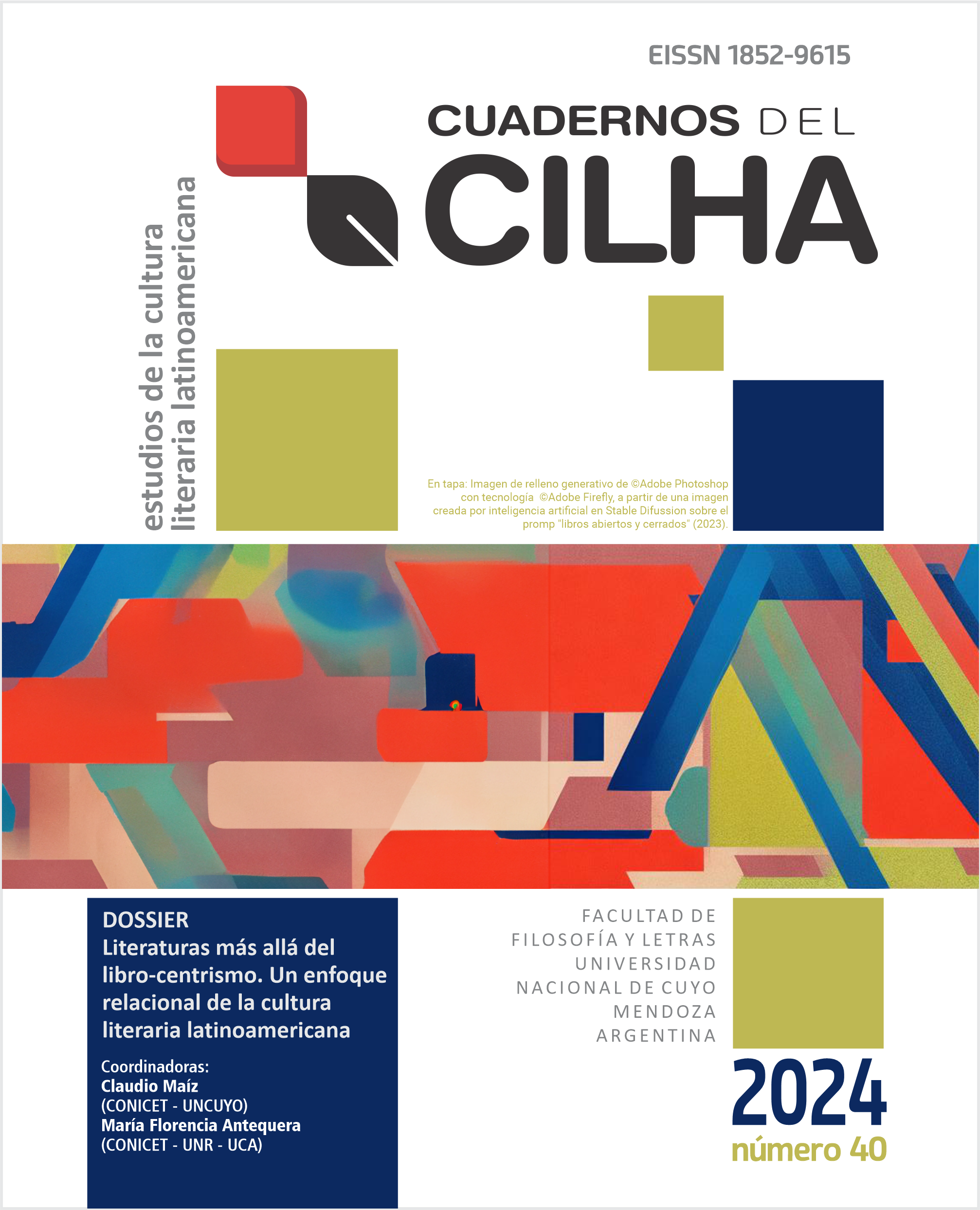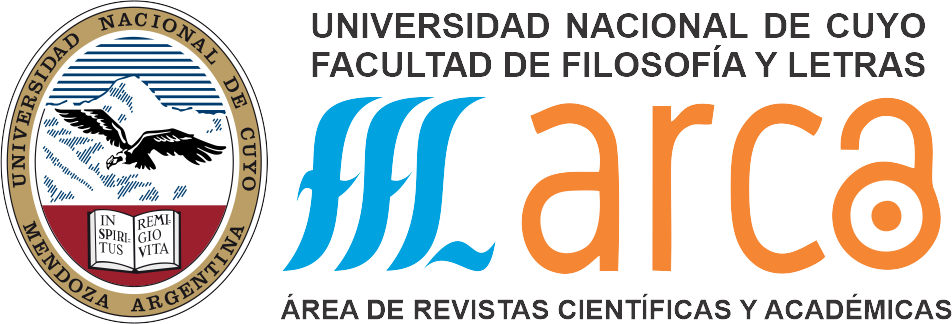Dimensions of the Benedettian Essay: the Performative, the Autopoetic and the Agonizing. Analysis Proposals for the Discursive Practice of a Committed Intellectual
DOI:
https://doi.org/10.48162/rev.34.096Keywords:
Committed intellectual, essay, discursive practice, BenedettiAbstract
The prolific incursion that Mario Benedetti makes in essay writing throughout his entire production and the complexity that this material manifests, highlights the character of intellectual discursive practice that this genre represents. The Uruguayan author continues with a continental tradition that approaches the essay as a privileged mode of social and cultural intervention by intellectuals (Maíz, 2004 and 2010; Weinberg, 2007 and 2019; Scarano, 1991 and 2010; Aínsa, 2014) and uses it to channel his reflections and positionings under the conception of the work of art as a tool for the transformation of the surrounding reality. Consequently, his books of essays become a processual result that requires, for a thorough analysis of its entirety, the contemplation of different dimensions that cross it. Our proposal supposes, then, an approach to the Benedettian essay from three of them: the performative, the autopoetic and the agonistic. Through the consideration of these edges into which the essay can be broken down as a discursive practice of a committed intellectual (Correa Lust, 2020), we will seek to delve into the particular value that this genre provides to the study of the work of one of the writers more committed to the revolutionary cause of the '60s and '70s in our continent.
References
Aínsa, F. (2014). Ensayos. Trilce.
Alburquerque, G. (2011). La trinchera letrada: Intelectuales latinoamericanos y guerra fría. Ariada Ediciones.
Altamirano, C. (2013). Intelectuales: notas de investigación sobre una cultura inquieta. Siglo Veintiuno editores.
Angenot, M. (1982). La Parole pamphlétaire: Typologie des discours modernes. Payot.
Angenot, M. (2010). El discurso social. Los límites históricos de lo pensable y lo decible. (Trad. H. García). Siglo XXI.
Arenas Cruz, M. E. (1997). Hacia una teoría general del ensayo. Construcción del texto ensayístico. Ediciones de la Universidad de Castilla.
Benedetti, M. (1960/1968). El país de la cola de paja (7ma ed.). Bolsilibros Arca.
Benedetti, M. (1972) Los poetas comunicantes. Biblioteca de Marcha.
Benedetti, M. (1974). El escritor latinoamericano y la revolución posible. Ed. Alfa Argentina.
Correa Lust, C. (2019). Literatura, compromiso e intelectual: la influencia del pensamiento sartreano en la ensayística de Mario Benedetti. Asociación de Profesores de Literatura; Revista de Literatura y Arte, 22 (4), 14-19. https://ri.conicet.gov.ar/handle/11336/175573
Correa Lust, C. (2020). Mario Benedetti y el ensayo: la práctica discursiva de un intelectual comprometido. América Sin Nombre, 24 (2), 13–22. https://doi.org/10.14198/AMESN.2020.24-2.01
Espeche, X. (2016) La paradoja uruguaya: Intelectuales, latinoamericanismo y nación a mediados del siglo XX. Universidad Nacional de Quilmes.
Gómez, S. (2003). Interlegibilidad y ethos político: Tránsitos ensayísticos de las polémicas políticas de J. Cortázar. V° Congreso Internacional Orbis Tertius de Teoría y Crítica Literaria, 13 al 16 de agosto de 2003, La Plata. Polémicas literarias, críticas y culturales. http://www.fuentesmemoria.fahce.unlp.edu.ar/trab_eventos/ev.24/ev.24.pdf
Grasselli, F. H. (2011). Rodolfo Walsh y Francisco Urondo, el oficio de escribir. Tensiones y respuestas de una literatura peligrosa: prácticas estético- políticas y escritura testimonial [Tesis doctoral]. https://www.eumed.net/tesis-doctorales/2012/fg/rodolfo-walsh-francisco-urondo-el-oficio-de-escribir-conclusiones.html
Kurlat Ares, S. (2006). Por una intelectualidad sin episteme: el devenir de la literatura argentina (1974-1989). Corregidor.
Lucifora, M. C. (2020). Máscaras autorales: análisis de las autopoéticas. Eudem.
Maíz, C. (Ed.). (2010). El ensayo latinoamericano: revisiones, balances y proyecciones de un género fundacional. Facultad de Filosofía y Letras, UNCuyo.
Maíz, C. (2004). El ensayo: entre género y discurso. Debate sobre el origen y funciones en Hispanoamérica. Editorial de Facultad de Filosofía y Letras, Universidad Nacional de Cuyo.
Sapiro, G. (2017). Los intelectuales: profesionalización, politización, internacionalización. Eduvim.
Sartre, J. P. [1947] (2008). ¿Qué es la literatura? Losada.
Scarano, E. M. (1991). Discurso ensayístico, cultura e ideología en el sistema literario hispanoamericano. Celehis, 1, 155-166. https://fh.mdp.edu.ar/revistas/index.php/celehis/article/view/201
Scarano, E. M. (2010). El ensayo como interpelación: Notas sobre el ensayo, cultura y política en América Latina. En C. Maíz (Ed.), El ensayo: entre género y discurso. Debate sobre el origen y funciones en Hispanoamérica. Editorial de Facultad de Filosofía y Letras, Universidad Nacional de Cuyo.
Weinberg, L. (2007). Situación del ensayo. CCYDELUNAM.
Weinberg, L. (2019). El ensayo como espacio de diálogo intelectual. Fractal, 87, 33-62. https://www.mxfractal.org/articulos/RevistaFractal87Weinberg.php





















